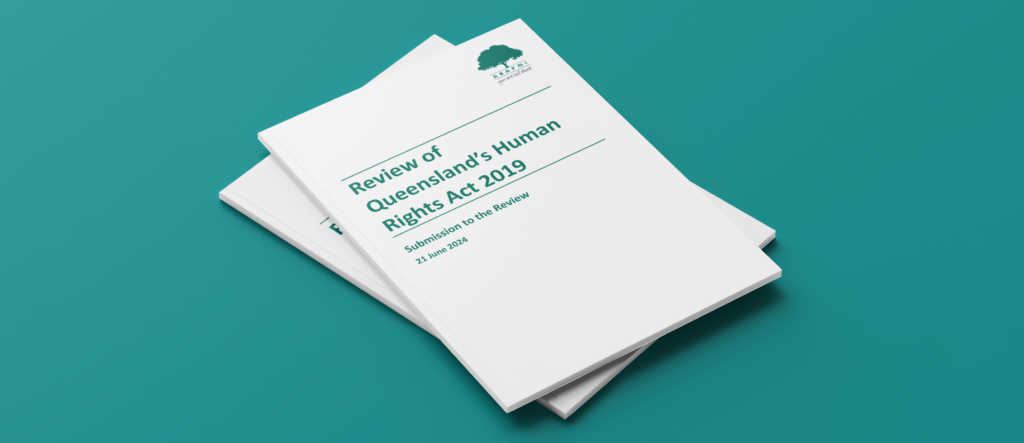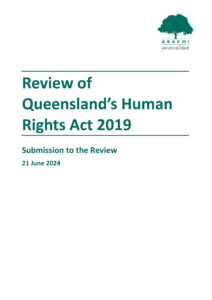Submission to the Human Rights Act Review
Arafmi recently made a submission to the Independent Review of Queensland’s Human Rights Act.
The Human Rights Act was established in 2019 to protect and promote the human rights of Queenslanders when they interact with Queensland Government departments and services, including public hospitals, public mental health services, police and public schools.
In our submission we highlighted that due to lack of appropriate mental health services, many mental health carers feel they do not get a choice in taking on a caring role, which is in essence a lack of protection of their right to freedom from forced work. We provided examples of where public systems and services are not balancing the rights of carers with the rights of those they care for, including in relation to privacy, liberty and security of person. We also suggested that the right to social and economic participation should be considered for inclusion under the Human Rights Act and that much greater attention needs to be given in public policy and services to the protection of whole families (using the broadest possible definition of families) and children and young people who are caring for someone with mental ill-health.
You can read the submission below:




